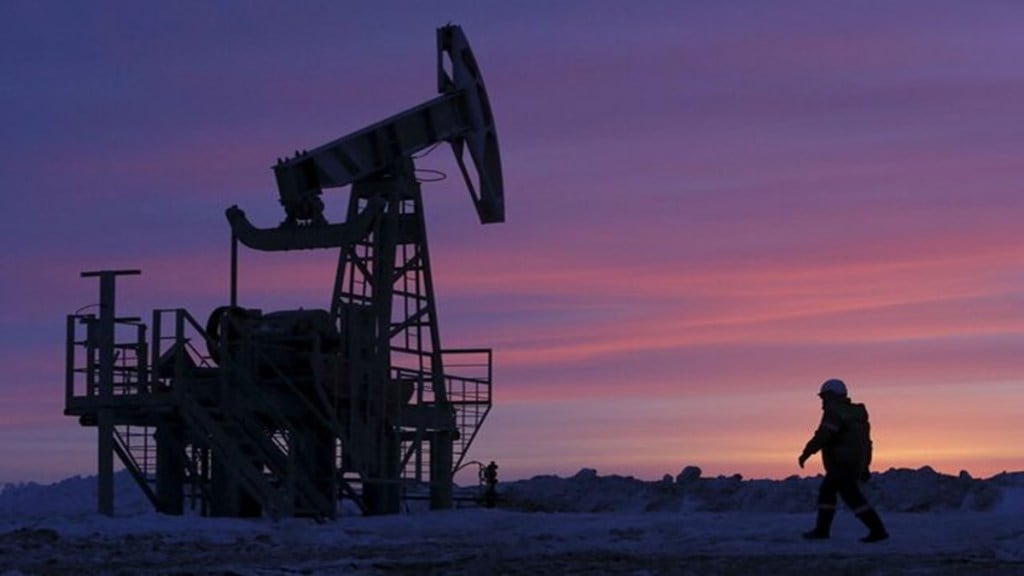The recent rise in international crude oil prices, driven by the ongoing conflict between Israel and Iran, calls for close monitoring by the Reserve Bank of India (RBI) on the inflation front. While Brent crude has climbed by about $4-5 per barrel since the latest escalation, it has surged nearly 15 per cent since May.
Crude oil spikes amid Israel-Iran conflict
Rajani Sinha, Chief Economist, CareEdge Ratings, said, “Brent crude oil prices have surged—up approximately 16 per cent since the end of May—amid renewed geopolitical tensions in the Middle East. These developments warrant careful observation, as they pose potential risks to global commodity markets and supply chains.”
Economists traditionally estimate that a $10 rise in crude oil prices can push inflation up by around 0.4 per cent to 0.6 per cent. JM Financial said that Brent crude prices have jumped by approximately 7 per cent to around $74 per barrel due to concerns over a possible disruption in Iran’s oil exports (1.5-2 million barrels per day out of total 3.4 million bpd).
JM Financial said, “A loss of 0.5–1 million bpd of Iranian exports could raise oil prices by $5–10/bbl. However, prices are unlikely to exceed $80/bbl in the near term because: he global oil market is currently oversupplied by 1–2 million bpd; and Saudi Arabia has spare capacity of about 2 million bpd.”
Madhavi Arora, Chief Economist, Emkay Global Financial Services, said, “Oil prices spiked with Brent up to $78/bbl after Israel attacked Iran. We have a $70/bbl Brent assumption for FY26 with Q1FY26 likely to average at $67-69/bbl.”
According to Bloomberg data, Brent crude oil prices surged $69 per barrel last week when the tensions in the Middle East escalated, from $74 per barrel today. While the Brent crude oil prices in May were trading at $65.41 per barrel.
Temporary impact expected; de-escalation likely
However, economists suggest that the recent stability in crude oil prices could help alleviate inflation-related worries. Aditi Gupta, Economist at Bank of Baroda, said that the uptick in crude prices appears to be a knee-jerk reaction to the conflict in the Middle East. “It seems likely that the situation would de-escalate in a gradual manner, which implies that we can expect crude prices to return to the levels before the tensions flared. Hence, the impact on CPI is not likely to be significant,” she added.
JM Financial also maintained that a big risk to oil prices would arise if Iran blocks oil movement through the Strait of Hormuz, which handles around 20 per cent of global oil and LNG shipments. However, it added, this is unlikely, as the Strait has stayed open even during past conflicts, and Western nations would step in to keep it that way. “Brent crude is likely to stay between $70–80/bbl in the short term, and could settle around $70/bbl once tensions ease,” the brokerage firm said.
Earlier on Friday, Israel attacked Iran’s capital, targeting nuclear facilities and missile factories and killing military leaders. The official IRNA news agency also announced the beginning of “a new wave of missiles” launched towards Israel.
Meanwhile, US President Donald Trump has warned of the chance of a massive conflict though the country has denied any involvement in the Israeli attacks. Trump had earlier also stated that Israel may attack Iran.
Economists flag limited inflation risk
India’s retail inflation, over the last few months, has stayed below the Reserve Bank of India’s (RBI) medium-term target of 4 per cent. India’s retail inflation eased to a 75-month low of 2.82 percent in May, compared with 3.2 percent in April. Further, the central bank, in its monetary policy review on June 6, lowered its inflation forecast for fY26 to 3.7 per cent. Economists had maintained that the recent surge in crude oil prices have kept the RBI watchful of the evolving situation.
Madhavi Arora said, “As of now, we are not changing our forecasts and continue to see CPI inflation undershooting RBI’s estimate of 3.7 per cent to average much lower 3.3-3.4 per cent in FY26. We note every $10/bl increase in oil leads to annualised gain of 35 bps in CPI inflation.”
